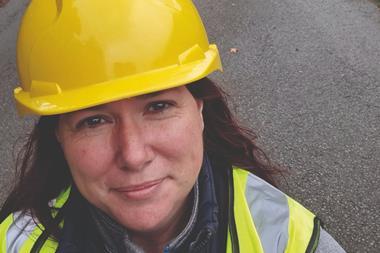When better to shine a spotlight on equality, diversity and inclusion than during National Inclusion Week? Now in its 10th year, National Inclusion Week celebrates inclusion and encourages employers to take action to create inclusive workplaces.

Despite such initiatives, equality, diversity and inclusion (EDI) in the UK still has a long way to go. According to government figures, 78% of white people were employed in the UK in 2019, compared to 66% of people from all other ethnic groups combined. The disability employment rate, meanwhile, stands at just 52.7%. The Chartered Management Institute points out that just 38% of senior business positions in the UK are occupied by women.
Equality, diversity and inclusion in the build to rent sector
As a South African in the UK who has also worked in African and EU countries over the past 25 years, EDI is important to me on a personal level, as well as from a business perspective. It’s also hugely important to the UK Apartment Association (UKAA) due to its importance in shaping a successful future for the build to rent (BTR) sector. With its foundation as a long-income model and its single-owner operational model, BTR is uniquely placed to look at the challenge of EDI in the UK. And doing so has never been more important.
According to the Diversity Wins report from McKinsey, embracing diversity is linked with enhanced corporate performance. McKinsey’s research found that businesses ranked in the top quartile for gender diversity on their executive teams were 25% more likely to achieve above-average profitability than businesses ranked in the fourth quartile. Not only that, but the likelihood of achieving above-average profitability is increasing, from 15% in 2014, to 21% in 2017, and 25% now. Likewise, McKinsey’s research has shown that businesses with ethnic and culturally diverse leadership teams in place are 33% more likely to outperform their peers.
The benefits of embracing EDI are increasingly clear – and they are about far more than profits. We can see this in the build to rent sector, where a robust approach to EDI has the power not just to impact investment returns, but to attract a wider talent base, provide broader perspectives, gain fresh insights and foster a culture of innovation.
EDI within BTR also means the sector can ensure good representation of its customer base. It lays the foundation for encapsulating a diverse and inclusive point of view throughout every stage of the BTR journey. The BTR industry is at an inflection point. Completions hit an all-time-high in 2021, with 70,785 BTR homes in the UK by the end of that year, according to the British Property Federation and Savills (an increase of 14,660 compared to the number at the end of 2020).
Building diversity into our teams means more opportunities for the whole sector and enhanced reputations for those putting EDI front and centre. It means a greater understanding of our customers and the ability to retain them for longer. As a performing asset class, the sector must produce a return for investors. At the same time, as a provider of accommodation, it must deliver the emotional value of a home to its residents – the source of revenue. This has created a unique relationship between investors and their customers; a relationship that is mutually dependent and successful through mutual investment.
Of course, many others are involved in the sector: between developers, designers, advisers, contractors, suppliers and operators, there is an army of people who are, directly and indirectly, part of the emerging BTR ecosystem. All of these individuals have a part to play in responding to the EDI challenge in BTR.
Environmental, social and corporate governance
Investors are under pressure to set environmental, social and corporate governance (ESG) objectives and to measure and report on them. This is a real and rising expectation from their stakeholders and many of their peers. Investors are becoming increasingly forensic and setting clear expectations for financial and ESG performance of their assets. The impact of this will be felt by all involved in the sector.
EDI is part of the ESG agenda – it speaks directly to the ‘S’ of ESG. Now, the BTR industry is very focused on the ‘E’ of ESG. It’s all about measuring and reporting on carbon reduction in the move to net zero carbon. How long will it be until EDI is given a similar status to carbon reduction? When will social sustainability be seen as equal to environmental sustainability?
For our investments to be truly successful (and sustainable) we must invest in the people who, at all levels, will help us deliver and operate our buildings so that they reflect the diversity of people who will be our customers and provide the return on investment that we seek.
EDI is an issue for all of society and the BTR sector has its role to play in addressing it. Thankfully, it’s an area of work where it’s easy to move from contemplation to action.
How? The first step is to acknowledge and accept the challenge. For businesses, that means setting goals that are appropriate and relevant, then implementing a strategy to deliver those goals. Establishing a baseline (which for most of us will start at a low or zero base), then working forward makes it possible to monitor and measure progress. To establish your baseline, you could start a focus group. Alternatively, registering for the Swift Bunny/UKAA EDI survey can help you achieve that initial benchmark. The survey is proving an important tool in focusing the BTR sector on its current baseline in terms of EDI.
Success criteria
As the ESG agenda matures, EDI reporting will increasingly form part of success criteria for BTR investors, operators and customers. This means that businesses focusing on EDI and making progress will be attractive to both investors and customers, reducing their reputational risk. A diverse workforce will also provide a richer source of knowledge, inspiration and cultural experience. There are plenty of business and ESG benefits to this, to say nothing of the positive contribution to working culture and wellbeing that a focus on EDI can deliver.
The BTR sector has already proven itself as a pioneering force in residential real estate. It can continue this trajectory by taking on the challenge of EDI and continuing to show leadership, backed by action. The goal is that the sector will open its doors to all, demonstrating the investment and social value of a strong culture of equality, diversity and inclusion.
We look forward to exploring this in greater detail at UKAA’s Annual Build to Rent Conference and Industry Awards 2022 on 15th November 2022. EDI will be a key theme at the event, and we are delighted to have Nero Ughwujabo, senior strategy adviser – equality, diversity and inclusion for the Prince’s Trust and Prince’s Trust Group, as the keynote speaker.
Brendan Geraghty is CEO of the UK Apartment Association
































No comments yet